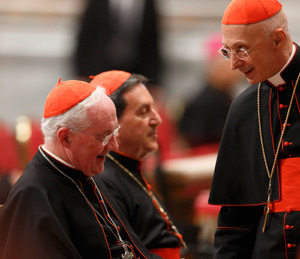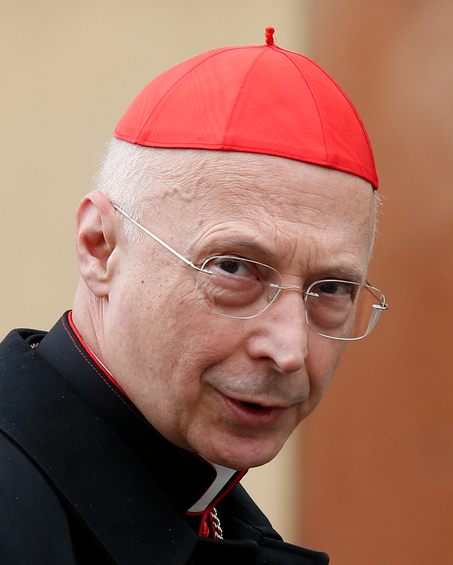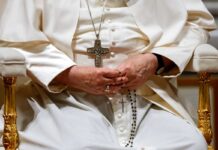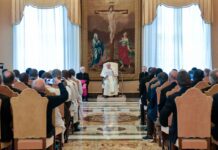
VATICAN CITY (CNS) — With extensive pastoral experience and a background in education, Italian Cardinal Angelo Bagnasco of Genoa, 70, has served as president of the Italian bishops’ since 2007.
As vice-president of the Council of European Bishops’ Conferences, he is well aware of the situation and challenges facing the church in Europe.
He has been the Italian bishops’ leading spokesman in the debate over government plans to grant legal recognition to cohabiting couples, including gays. While the bishops have been criticized by some for “interfering” in Italian politics, the cardinal has led the bishops’ efforts to promote public policies aimed at helping the traditional family. He has said that “society would collapse without values.”
Under his watch, the Italian bishops’ conference drafted its first ever set of guidelines for handling accusations of clerical sexual abuse; it was one of the last bishops’ conferences in Western Europe to draw up the national plan of action. Also, the guidelines only came after the Vatican’s doctrinal office mandated that all the world’s bishops’ conferences draft and have the norms in place by 2012.
Some abuse victims’ advocacy groups have complained Italy has not done enough in addressing suspected cases, and even the Vatican’s former promoter of justice, Auxiliary Bishop Charles Scicluna of Malta, said in 2010 that while “the phenomenon (of priestly sexual abuse of minors) does not seem to have dramatic proportions,” in Italy as in other countries, “what worries me is a certain culture of silence, which I feel is still too widespread in the country.”
Cardinal Bagnasco has said it was possible there were cases of clerical sex abuse in Italy that were covered up, but the church would condemn such concealment and urge that it “must be corrected and overcome.”
He told Italian bishops attending a general assembly in 2010 that “a person who abuses minors needs to be concurrently brought to justice and receive treatment and mercy.”
While the bishops’ 2012 guidelines urge bishops to cooperate with civil authorities, they also make it clear that bishops in Italy have no legal obligation to report suspected cases to police.
He said the church has never sought to underestimate the severity of the sex abuse crisis and called on families “to recognize that we, the church, will do everything to always, and increasingly, merit their trust.”
In response to the influx of illegal immigration, particularly from North Africa, Cardinal Bagnasco called on Europe in 2011 to recognize that Italy cannot handle the migration flow by itself. But he also reminded Italians that the ongoing immigration emergency stems in part from long-standing global inequities, and that Europe cannot keep out the world’s poor simply by patrolling its borders.
“It’s an illusion to think that one can live in peace, keeping at a distance young populations that are burdened by deprivation and that are legitimately trying to satisfy their hunger,” he said in 2011. Persuading these people to remain in their homeland will require implementation of “policies of true cooperation,” he added.
Born in Pontevico, Italy, he was ordained to the priesthood in 1966 and holds a doctorate in philosophy from the University of Genoa. He spent nearly 20 years, 1966-1985, as an assistant parish priest in Genoa, during which time he also taught Italian to high school students at the Genoa seminary for nearly a decade. He also taught metaphysics and contemporary atheism at the Theological Faculty of Northern Italy, 1980-1998.
In 1998, he was named bishop of Pesaro. Two years later, the diocese became an archdiocese.
In 2001 he was appointed chairman of the board of the Italian Catholic daily paper “Avvenire,” and he served as secretary of the Italian bishops’ Commission for Education, 2002-2005.
In 2003, the cardinal was named the ordinary for Italy’s armed forces, and in 2006 he succeeded Cardinal Tarcisio Bertone, the former Vatican secretary of state, as archbishop of Genoa. He was appointed president of the Italian bishops’ conference in 2007 by Pope Benedict XVI, who — as bishop of Rome — was responsible for naming the conference’s top officer. The pope also elevated him to cardinal in 2007.
— By Carol Glatz Catholic News Service







